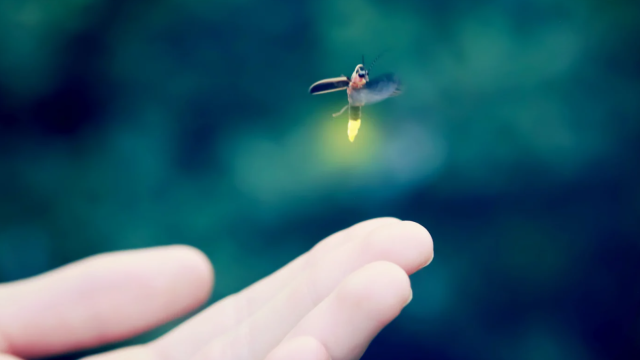If you’ve noticed that your backyard doesn’t seem to glow with the twinkle of fireflies as much as it used to (or perhaps you’ve never seen them), you’re right: It likely doesn’t. Fireflies are disappearing from fields, marshes and forests all over the world.
The data might not be there to show the decline quantitatively, but the empirical evidence is there. Christopher Heckscher, an entomologist at Delaware State University, told USA Today that he has hunted rare fireflies, and there are some described by entomologists in the early 20th-century that he can’t find — including a firefly that was commonly found in the Brandywine River watershed, a part of the Delaware River watershed in New York, Pennsylvania, Delaware and New Jersey.
No one is 100% sure what’s causing the disappearance, but there are some theories.
Why are fireflies disappearing?
Most firefly species thrive in rotting wood and forest litter near small water sources, according to Firefly Conservation & Research, a non-profit run by a Texas-certified master naturalist and firefly researcher. The insects, part of the beetle family, tend to stick to warm, humid environments somewhere near a water source like a stream, pond or river. They’re even happy with a shallow dip in a dip in the ground that causes it to hold water longer than the surrounding area.
However, fireflies’ favoured habitats are disappearing. According to the website,
The problem is that … our open fields and forests are being paved over, and our waterways are seeing more development and noisy boat traffic. As their habitat disappears under housing and commercial developments, firefly numbers dwindle.
And that’s to say nothing of logging, pollution and pesticides — all of which destroy firefly habitats and prey — and light pollution.
Fireflies use their lights as a way to communicate, and scientists have seen that synchronous fireflies — a species that synchronise their light flashes to find a mate — get out of sync for a few beats when a car headlight flashes, according to the conservation group. Light from stores, streetlights and homes, too, can affect the synchronised flashes, resulting in fewer firefly babies next season.
Fireflies also use their flashes as a warning signal. Disrupting or obscuring those flashes makes the insects more vulnerable to predators.
How you can help
If you want to help these little glowing buggers survive, there are a few things you can do to help, courtesy of the conservation group:
- Turn off your outside lights. It’ll help fireflies find a mate, which is good for next season’s populations.
- Plant some native trees in your yard. The larva of some species grows in rotten logs and forest canopy litter, so let the natural litter around them accumulate.
- Add water features to your landscaping. Most fireflies thrive around standing water. That doesn’t, however, include swimming pools: Fireflies eat the grubs, snails and smaller insects around natural ponds and streams, and those food sources don’t live in chemically treated environments.
- Skip the chemicals. Even if fireflies don’t ingest a chemical pesticide directly, they will likely ingest other insects that have been poisoned. Instead, opt for natural options, especially for lawn fertilisers.
- Don’t over-mow the lawn. It’s where a lot of fireflies hang out during the day, and frequent mowing can disturb them. In fact, planting long grasses can attract even more fireflies to your yard.
As Heckscher, the Delaware State entomologist, told USA Today,
“I want my kids to be able to catch fireflies with their kids. Losing these things is not something that’s just going to affect us today but for the rest of time.”

Leave a Reply
You must be logged in to post a comment.